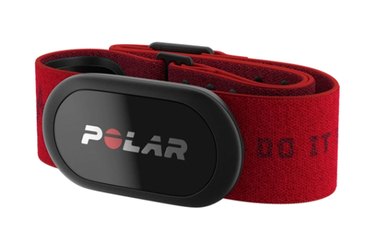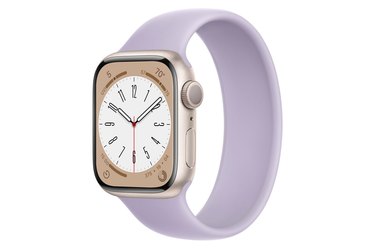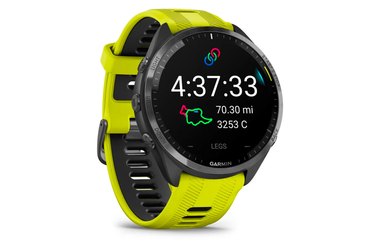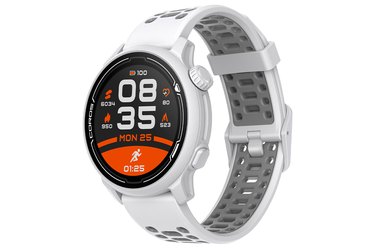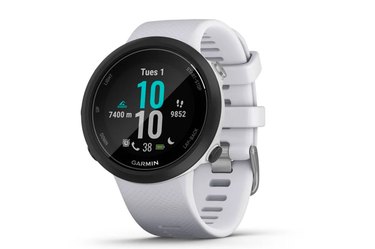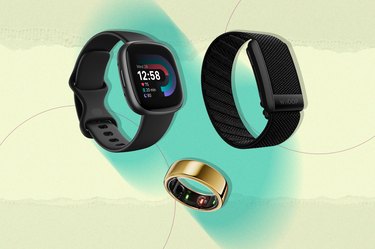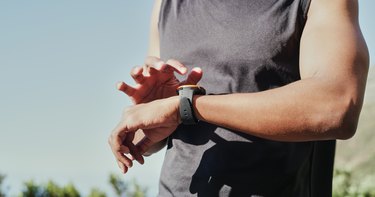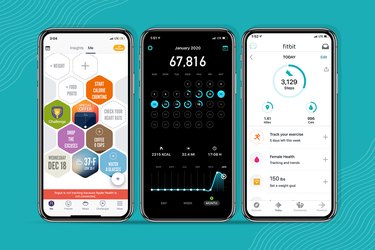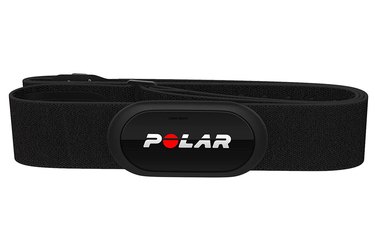
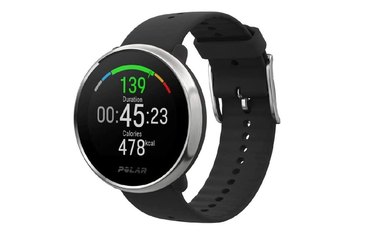
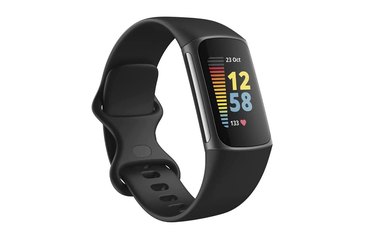
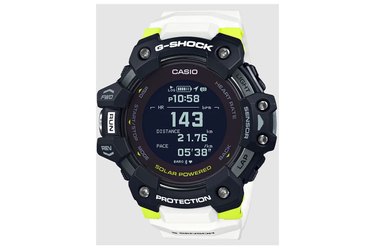
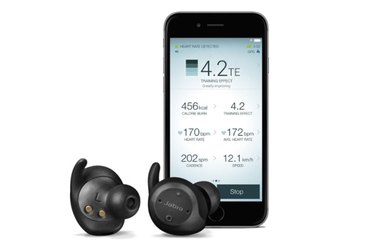
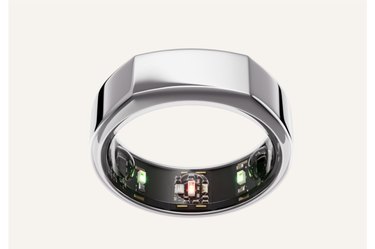
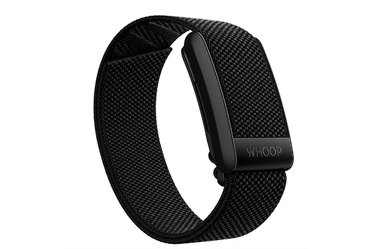
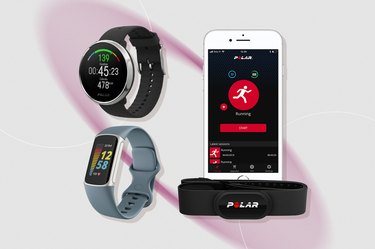
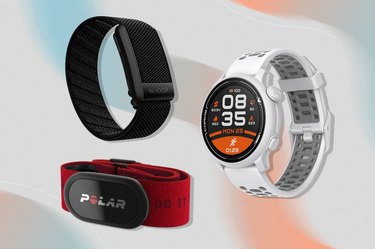
Once upon a time, heart rate monitors and fitness trackers were reserved for elite athletes. But today, these gadgets are more accessible than ever and anyone can benefit from measuring their health with a heart tracker.
Because they're now so popular, there are seemingly endless device options in all different forms, like watches, chest straps and rings (yep, you read that right). Take a look through some of our favorites and learn how to find the best heart rate monitor for your needs.
Video of the Day
Video of the Day
How We Chose
First, we spoke to qualified experts like personal trainers and running coaches to determine which heart rate monitors are worth it and what constitutes a good one. We also relied on personal experience from own staff and verified reviews on retail sites.
The HR monitors on our list made it here based on:
- firsthand experience
- expert advice
- reviews
- reliability
- features
The Best Heart Rate Monitors
- Editor's Pick: Whoop 4.0 ($30/month, Join.WHOOP.com)
- Best Chest Strap: Polar H1o ($89, Polar.com)
- Best for Daily Wear: Apple Watch Series 8 ($459, Amazon.com)
- Best for Endurance Athletes: Garmin Forerunner 965 ($599, Garmin.com)
- Best for Zone Training: Coros Pace 2 ($200, REI.com)
- Best Waterproof: Garmin Swim 2 ($249, Garmin.com)
- Best Small Size: Oura Ring ($299, OuraRing.com)
1. Editor's Pick: Whoop 4.0
For those who want an in-depth look at their overall health, recovery and workout performance, the Whoop strap is the best heart rate monitor. This wrist strap stores data like your heart rate, heart rate variability and sleep, which you can then access using the Whoop app.
The band itself has no display, so all your workouts stay distraction-free. Then after you finish training (or while you exercise), you can check your phone to see how your heart reacted to different parts of your workout.
"The analytics set you up for success," says LIVESTRONG.com Health Writer Ciara Lucas. "There's a sleep coach that recommends how much rest I should get to recover from my day in order to have peak performance for the following day. Whoop also suggests daily optimal strain, so I know how much I should really push myself in my workout each day depending on my recovery score."
Three of our editors have tested (and love) the Whoop for its ability to calculate your recovery and help plan your efforts, using heart rate monitoring. Read more about how the Whoop changed the way we approach our workouts here.
Buy it: Join.WHOOP.com; Price: $30/month, $288/year or $324/18 months (band included with purchase)
2. Best Chest Strap: Polar H10 Heart Rate Monitor
For an accurate read, chest straps are the way to go. And the Polar H10 is worth your consideration, according to personal trainer Mohamed Elzomor, CPT. All you have to do is fasten the chest strap around your torso, attach the monitor and connect the device to your phone using Bluetooth.
A chest strap gives a pretty accurate read and the inside of the strap is rubberized, so it won't shift around during any type of workout. You can even sync this heart rate tracker to different fitness apps (like Apple Health) or you can download the company's own Polar Beat app to track your stats.
"The Polar version is used for research purposes, and it may be the best option for athletes that are looking for perfect data," David Roche, MS, coach at SWAP running, says.
Des Yap (aka DesFit), a sports technology expert with many years of experience testing smartwatches, heart rate monitors and cycling gear, also recommends the Polar H10. "It's one of the best options, not only for its accuracy but also its comfort, durability and connectivity," he tells LIVESTRONG.com.
The Polar H10 can connect to your smartwatch, smartphone as well as gym equipment, and it comes with a comfortable, secure and replaceable strap. Yap also notes its impressive battery life: up to 400 hours of use.
Buy it: Polar.com, Price: $89.95; Amazon.com, Price: From $82.53
3. Best for Daily Wear: Apple Watch Series 8
LIVESTRONG.com Fitness Editor Danielle Zickl wears her Apple Watch every day, and love the three rings you can "close" each day. "Wanting to close those rings each day serves as motivation for me to move and stand enough," she says. "And I appreciate that it tells me to stand every hour, because otherwise I easily forget to."
Zickl also likes to turn on heart rate notifications, which will let you know if your heart rate is above or below the BPM you choose or if you have an irregular heart rhythm — and it's legit.
"The Apple Watch has one of the best optical heart rate sensors found on any smartwatch," Yap says. "Along with its built-in GPS, the Apple Watch Series 8 strikes a good balance of health and fitness features while offering best-in-class smartwatch capabilities."
If you're looking for a less expensive option, the SE is also a good choice.
Buy it: Amazon.com; Price: $459
4. Best for Endurance Athletes: Garmin Forerunner
Garmin is the brand to beat when it comes to functionality and depth of features with heart rate–monitoring watches.
"The Forerunner 965 offers nearly every sport feature imaginable," Yap says. It also uses Garmin's 4th-generation Elevate heart rate sensor, a "close second" to the Apple Watch's sensor. However, according to Yap, the Forerunner is a better option for more serious athletes that need sport functionality as well as increased durability for outdoor-focused sports.
If you don't need quite as many sport options, the Forerunner comes in a few levels. "The newer Garmin watches seem to have made a strong leap in hardware," Roche says. "My Garmin Forerunner 745 is shockingly good."
Your Garmin can also calculate your VO2 max, a measure of your cardio capacity. Using that number, you can train to improve your stamina over time.
Buy it: Garmin; Price: $599.99
5. Best for Zone Training: Coros Pace 2
This watch is a favorite in running communities, but LIVESTRONG.com Associate Fitness Editor Bojana Galic uses it for triathlon training. Trying to stay in zone 2 during workouts? This watch can alert you when you've moved into different zones, making it great for heart rate–based training.
"It does a great job of measuring my heart rate during my long bike sessions and it's super accurate with distance in the pool," she says. "I also love that you can set specific heart rate zones for your workouts and the watch buzzes to let you know when you've exceeded your desired zone."
Unlike most smartwatches, the Coros Pace 2 doesn't allow you to access your music. Galic prefers that, however: "The focus is performance, no bells and whistles."
Buy it: REI.com; Price: $200
6. Best Waterproof: Garmin Swim 2
If swimming is your sport of choice and you want a heart rate monitor that can keep up with you, stroke for stroke, Garmin's Swim 2 watch is a top pick. The water-focused watch includes an impressively accurate HR monitor in addition to seriously deep options for swim workouts.
The watch is lightweight with a face that's easy to see underwater, and also includes GPS to track you in open water. It's waterproof rated up to 50 meters, which is a depth of 164 feet.
Buy it: Garmin; Price: $249.99
7. Best Small Size: Oura Ring
The Oura ring may just be one of the smallest, most convenient HR monitors out there. This lightweight, water-resistant ring monitors your heart rate, heart rate variability, body temperature and calorie burn, all by tracking your pulse in your finger.
This ring has about four to seven days of battery life and connects to your Apple Health or Google Fit apps to monitor and track your progress.
Buy it: OuraRing.com; Price: $299
3 Factors to Consider While Shopping
1. Device Type
Heart rate monitors come in all shapes and sizes, so you want to find the device style that's best for your purposes. "For general health and fitness, I think it comes down to which kind of device fits your lifestyle," Yap says. "And athletes need to consider what works best for the sports they participate in."
Watches: These are among the most common daily monitors and are especially convenient for everyday wear. Most fitness watches are also Bluetooth compatible, enabling you to view and track your data from your phone throughout the day.
Chest straps: These are the most accurate heart rate monitors for during exercise, according to Elzomor. Worn around your torso, chest straps are best for athletes who want to use their monitors specifically during a workout, as opposed to day-to-day wear.
Headphones: You can also find heart rate–tracking headphones, but we didn't include any on this list as many of the previous top performers have now been discontinued and none came highly recommended. Accuracy can be tough to gauge with these, but they might be a good option if you absolutely don't want to wear another device.
2. Budget
Different devices can range pretty drastically in price, from $80 up to several hundred dollars. With that said, your budget is going to dictate a lot of the options at your disposal.
Generally, the pricier devices offer a little more functionality, as they tend to connect to an app that allows you to track other health statistics. So, if you're someone who wants a more in-depth look at your health, the investment may be worthwhile.
Still, simpler, lower-tech monitors get the job done without the extra frills. These are an ideal choice for those who want a straightforward, distraction-free measure of their heart health.
3. Special Features
In addition to tracking your BPM, many of the best heart rate monitors also have special features like heartbeat notifications and comprehensive reporting. As mentioned above, these are generally a little pricier but can provide some beneficial data, especially if you're trying to meet a new fitness goal or prepare for a race.
Before you buy a new monitor, read the product info closely to get an idea of what exactly the device measures. And no matter what, it's worth making sure the data you're getting is reasonable.
"Does it rise appropriately when you increase effort on uphills? Are there any anomalous spikes in the data? Those will be clues that the sensor isn't accurate," Roche says. "And that validation is especially important for wrist-based data."
Additional reporting by Bojana Galic.
